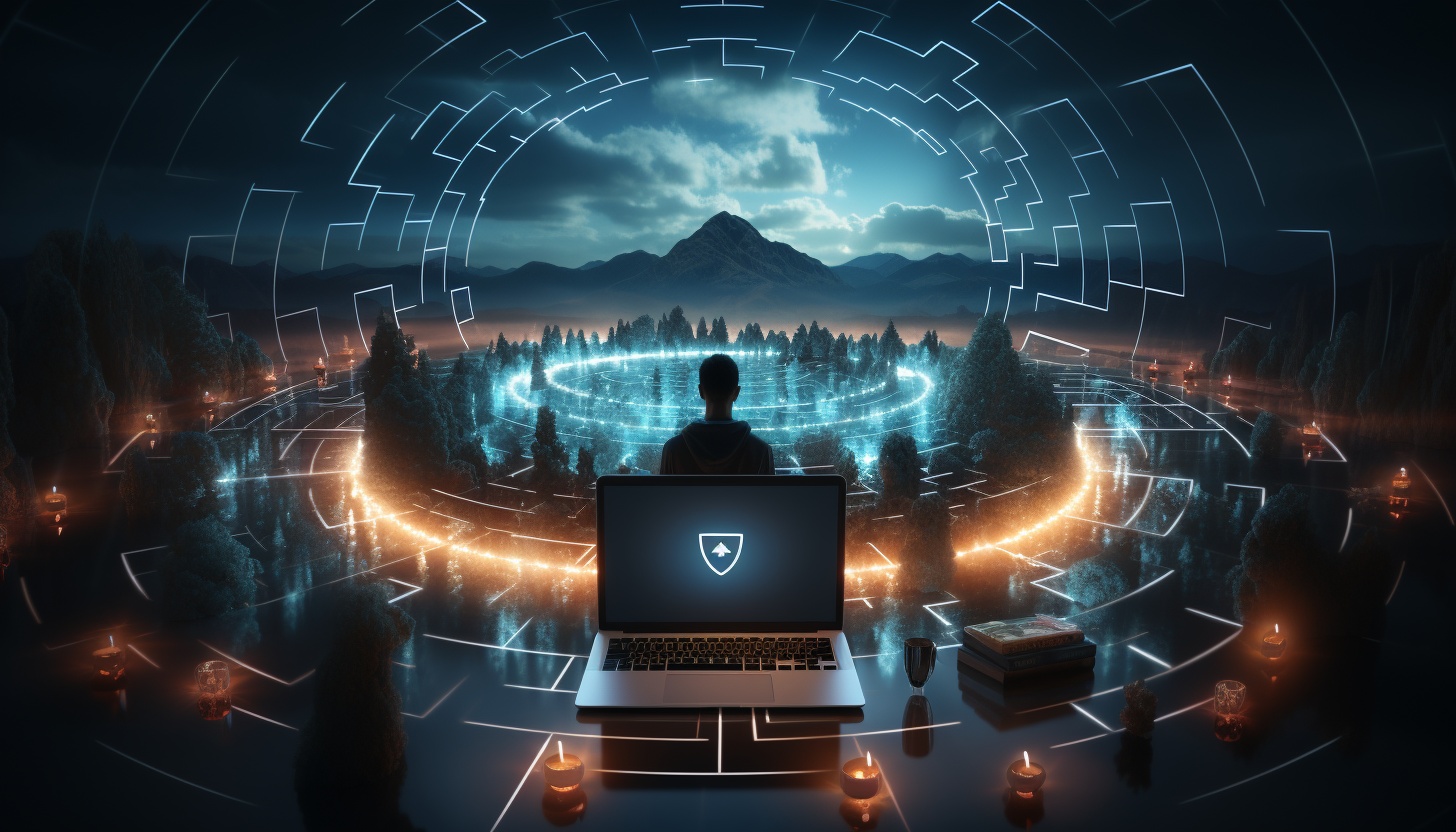
Embracing Online Safety: Secrets to Protecting Your Privacy and Security
You know the internet can be a risky place, but don’t worry – there are secrets to protecting your privacy and security online. In this article, we’ll show you how to embrace online safety and keep your personal information safe.
From creating strong passwords and using two-factor authentication to maximizing privacy with VPNs and safeguarding your social media accounts, we’ll cover all the essentials.
Stay informed and take control of your digital well-being with these expert tips.
The Importance of Strong Passwords

To ensure the highest level of security for your online accounts, it’s crucial to use strong and unique passwords. Strong passwords are essential in protecting your personal information from unauthorized access. A strong password typically consists of a combination of uppercase and lowercase letters, numbers, and special characters.
Avoid using common words, predictable patterns, or personal information that can be easily guessed. It’s also important to use different passwords for each of your online accounts. This way, if one account is compromised, your other accounts will still remain secure.
Remember to change your passwords regularly, at least every three to six months, to further enhance your online security. It’s highly recommended to use a password manager to generate and store your passwords securely. These tools can also help you keep track of your passwords without the need to remember them all.
Two-Factor Authentication: Adding an Extra Layer of Security

To add an extra layer of security to your online accounts, consider implementing two-factor authentication. This security feature requires you to provide two different types of identification before accessing your account. Here are three reasons why you should enable two-factor authentication:
– Increased Security: Two-factor authentication adds an additional step to the login process, making it harder for potential attackers to gain unauthorized access to your accounts. Even if someone manages to obtain your password, they’ll still need the second factor, such as a unique code sent to your phone, to gain entry.
– Protection Against Phishing Attacks: Phishing attacks involve tricking users into revealing their login credentials on fake websites. With two-factor authentication, even if you unknowingly enter your password on a phishing site, the attacker would still need the second factor, making it much more difficult for them to compromise your account.
– Peace of Mind: By enabling two-factor authentication, you can have peace of mind knowing that your online accounts are better protected. You can rest assured that even if your password is compromised, an additional layer of security is in place to keep your accounts safe.
Maximizing Privacy With Virtual Private Networks (Vpns)

By implementing two-factor authentication, you significantly enhance the security of your online accounts, and now let’s delve into maximizing your privacy with virtual private networks (VPNs).
A VPN is a tool that creates a secure and encrypted connection between your device and the internet. It acts as a middleman, routing your internet traffic through a remote server and masking your IP address. This protects your privacy by preventing anyone, including your Internet Service Provider (ISP) or hackers, from tracking your online activities.
When using a VPN, your data is encrypted, ensuring that even if it’s intercepted, it remains unreadable and protected from prying eyes. This is especially important when connecting to public Wi-Fi networks, where your data could be vulnerable to hackers. With a VPN, your connection is encrypted, making it nearly impossible for anyone to access your personal information.
Another benefit of using a VPN is the ability to bypass geo-restrictions. By connecting to a server in a different country, you can access content that may be blocked in your region. This is useful for streaming services or accessing websites that may be censored in your country.
To maximize your privacy with a VPN, it’s important to choose a reputable provider that doesn’t log your online activities. Additionally, be sure to use strong and unique passwords for your VPN account to prevent unauthorized access.
Safeguarding Your Personal Information on Social Media

Protect Your Personal Information on Social Media with These Essential Tips.
Social media platforms have become an integral part of our daily lives, allowing us to connect with friends, share our thoughts, and stay updated on the latest news. However, it’s important to remember that these platforms can also pose a risk to our privacy and personal information.
To safeguard your personal information on social media, consider following these essential tips:
1. Review your privacy settings: Take the time to go through the privacy settings on each of your social media accounts. Make sure you understand what information is being shared publicly and adjust the settings to limit access to your personal data.
2. Be mindful of what you share: Think twice before posting personal information such as your full name, address, phone number, or financial details. Share only what’s necessary and consider using pseudonyms to protect your identity.
3. Be cautious about friend requests and connections: Before accepting friend requests or connecting with someone on social media, verify their identity. Be wary of accepting requests from strangers or accounts that seem suspicious.
By implementing these essential tips, you can take control of your personal information on social media and minimize the risk of falling victim to privacy breaches or identity theft.
Stay vigilant, stay safe.
Staying Updated: The Key to Digital Well-Being

Stay informed and up to date to ensure your digital well-being. Staying updated with the latest information and trends in the digital world is crucial for protecting your privacy and security online. With technology constantly evolving, it’s essential to stay informed about potential threats and new cybersecurity measures to keep yourself safe.
One way to stay updated is by following reputable sources of information, such as cybersecurity blogs, news websites, and social media accounts of industry experts. These sources often provide valuable insights on emerging threats, security best practices, and software updates that can enhance your online safety.
Additionally, subscribing to security newsletters or joining online communities focused on digital security can also be beneficial. These platforms often share relevant and timely information, allowing you to stay ahead of potential risks and take proactive measures to protect yourself.
Regularly updating your devices and software is another critical aspect of staying updated. Manufacturers constantly release patches and security updates to fix vulnerabilities and improve the overall security of their products. By keeping your devices and software up to date, you can ensure that you have the latest protection against potential threats.
Conclusion
In conclusion, by implementing strong passwords, utilizing two-factor authentication, and maximizing privacy with VPNs, you can ensure your online safety.
Safeguarding personal information on social media is also crucial to protecting your privacy and security.
Staying updated with the latest security measures is another important step in safeguarding your online presence.
Embrace these strategies to protect your privacy and security, and take control of your digital well-being.
Stay informed, stay vigilant, and stay secure in the ever-evolving digital landscape.






